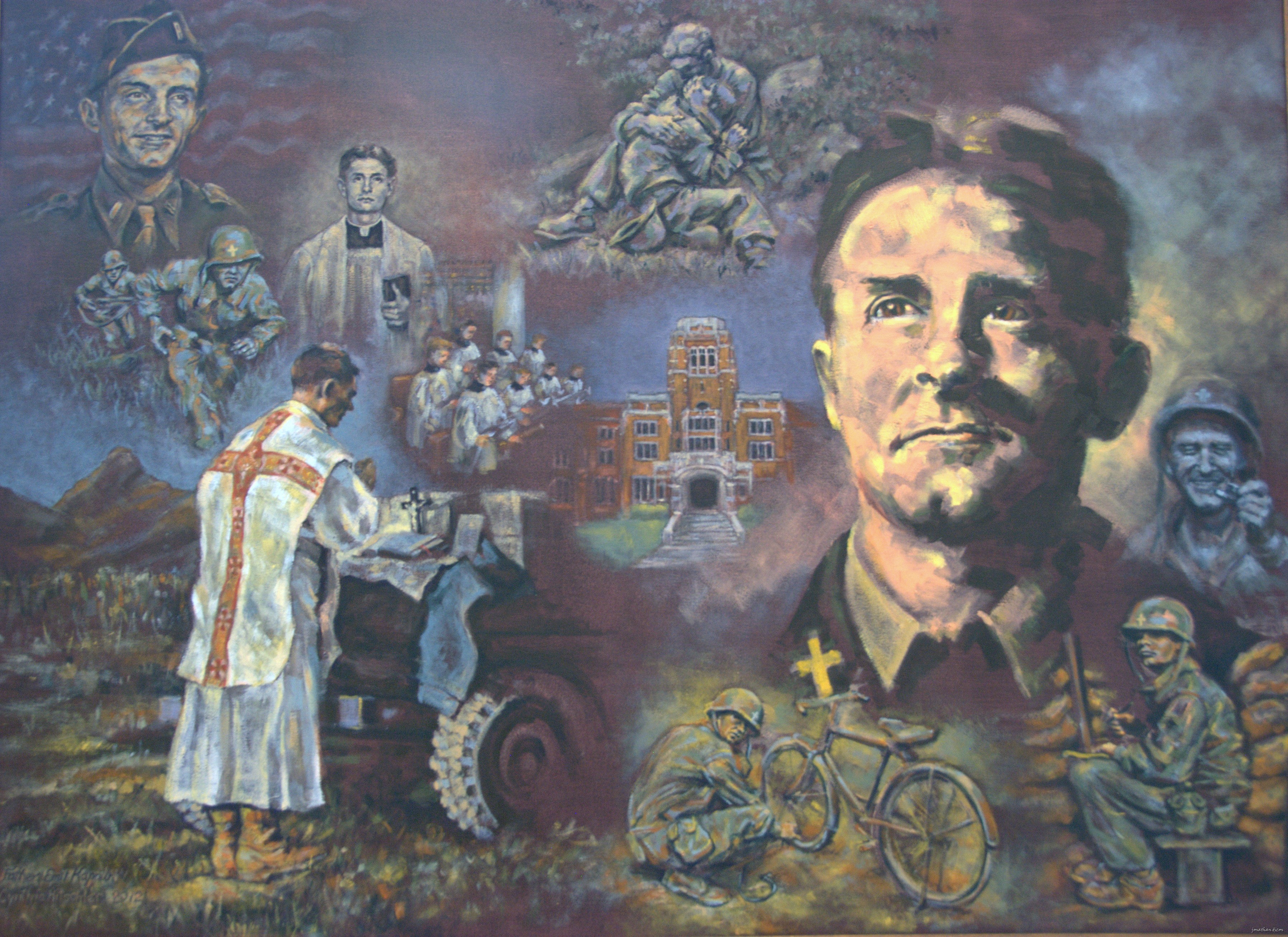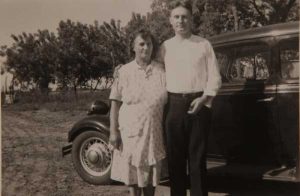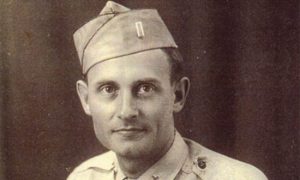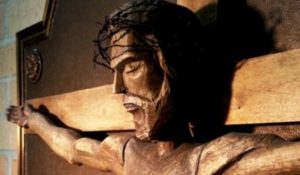
Servant of God Emil Kapaun was a priest, chaplain, prisoner of war, and a war hero. Emil was born to Czech immigrants Enos and Elizabeth Kapaun in 1916 in the farming town of Pilsen, Kansas.

They were a devout Catholic family, and Emil and his brother learned their prayers in both Bohemian and English. As a boy, Emil loved his faith, and in addition to being an altar server, he made a small altar in the family home, “played priest”, and picked wildflowers for the church altar. As a teen, he became skillful at repairing farm equipment.
FROM THE FARM TO THE SEMINARY
After high school, he attended seminary in St. Louis. He raised chickens for spending money, and spent his summers working on the family farm. Emil was ordained a priest in 1940 and served in the Diocese of Wichita until 1944, when he discerned a call to serve as a chaplain during World War II.

After training, he was sent to Burma (modern day Myanmar), where he served thousands of soldiers and civilians, covering a large area primarily by jeep. He kept up a regular written correspondence with his bishop and his family. After his release, he went to Catholic University of America, earning a Masters Degree in Education in 1948.
That fall, while serving at a parish in Kansas, Fr. Kapaun became aware of the dire need for Catholic chaplains in the armed forces. He re-enlisted, and was sent to Fort Bliss in Texas, where thirty thousand soldiers were being served by just two Catholic chaplains.
FAREWELL TO KANSAS

In December of 1949, he prepared for deployment to Japan, and said goodbye to his family and community for the last time. In the summer of 1950, Communist North Korea invaded South Korea, just a short distance from Japan. Fr. Kapaun’s unit was among the first to be sent to defend South Korea. He was assigned as chaplain to the 3rd Battalion, 8th Cavalry Regiment. The unit was on the war front from the beginning, gradually moving northward. As a chaplain, Fr. Kapaun earned a reputation for exceptional bravery. He offered Mass from the hood of his jeep, and reserved the Blessed Sacrament in his own clothing. He administered Baptisms, heard confessions, and showed no fear while ministering to the injured and dying in foxholes in the heat of battle. On October 9, the unit fought its way into North Korea, and advanced closer to the border of China, who was assisting North Korea in their invasion.
CAPTURE AND IMPRISONMENT
The Battle of Unsan was disastrous for the South Korean side. Father’s unit was ambushed by the Chinese army, and he was determined to reach the injured and return them to safety. On November 2, the unit was captured, and made to march in brutally cold temperatures for more than eighty miles to the Chinese prison camp. For most of the journey, Fr. Kapaun carried one or another injured soldier, despite having badly frostbitten feet. It was during the months in the prison camp that Father’s heroic dedication to his men became even more apparent. He dug latrines, washed dirty clothes, stole sacks of grain from the commissary to feed his starving fellow prisoners, and used his farming skills to make pots to turn snow into clean water for those suffering dysentery. He tended the sick and wounded, even cleaning lice from their hair. He held a prayer session with his men every night, and importantly forgave and prayed for the conversion and salvation of their merciless captors. He calmly rebutted the Chinese’s brutal indoctrination sessions, proclaiming the reality of God to their denial of His existence. In the spring of 1951, he developed a painful blood clot in his leg and pneumonia, and was moved to the camp “hospital”. There, he was left completely untended, and soon died May 23, 1951 at age thirty-five. He was buried in a mass grave nearby. Since this all occurred in a Chinese prison camp, his family was only notified that Fr. Kapaun was “missing in action”, until confirmation of his death was received in July of 1953.
When the emaciated men of Fr. Emil Kapaun’s unit were liberated from the prison camp, they were brimming over, often in tears, with stories of their beloved padre. They were carrying a four foot tall wooden crucifix, which they had carved in memory of their chaplain. The care he gave to his men was both physical and spiritual.

A FITTING TRIBUTE
The chaplain had shared with his men that he greatly desired to send his paychecks back to his diocese for the help of the needy. That dream became a reality when a boys high school (now co-ed) was established and named in his memory in Wichita, where the hand carved crucifix is displayed. In 1993, Pope (St.) John Paul II declared Fr. Kapaun a Servant of God, and a miraculous healing that occurred in Kansas is being attributed to his intercession. The long list of awards bestowed upon Captain Emil Kapaun by the United States Army was capped by the Medal of Honor given in 2013, presented to Father’s nephew. He is the most highly decorated military chaplain in U.S. history.
